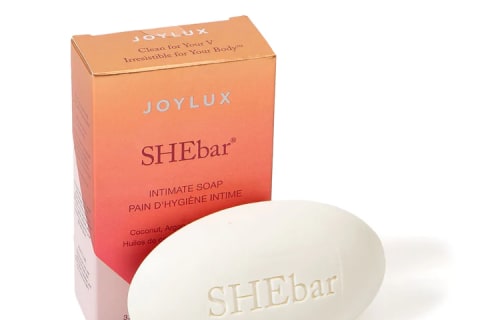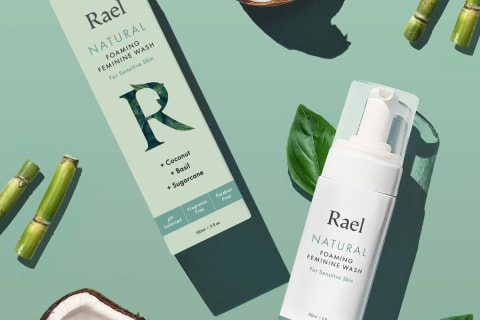Advertisement
5 Things An OB/GYN Wants You To Do For A Healthier Vagina


If this headline shocked you, then my point is proven: We don't talk about vaginas nearly enough. In fact, many people don't learn about vaginal health until they're forced to due to an infection or imbalance.
The broader topic of vaginal wellness can be intimidating, so we'll start with a simple list of five OB/GYN-recommended habits to adopt for a healthier vagina:
Gently cleanse your vulva
"While the vagina is a self-cleaning machine, the outer area (the vulva) does need gentle cleansing," board-certified OB/GYN and functional medicine practitioner Sarah de la Torre, M.D., tells mindbodygreen.
That being said, de la Torre notes that you should avoid harsh soaps and douches, as they can disrupt the natural pH balance of your vagina. In turn, this can trigger infections and irritation.
She recommends pH-balanced soaps specifically designed for use on the vulva. Her top choice is the Joylux SHEbar. Other great options include the Lola Cleansing Wipes and Rael Natural Foaming Feminine Wash—just pick a cleansing method that you feel comfortable with.
Shop cleansers
Take a look at your diet
"Believe it or not, your vagina, like everything else, can be affected by your diet," de la Torre says. To eat for vaginal health, she recommends getting in the habit of:
- Drinking enough water every day
- Consuming a variety of natural fruits and vegetables
- Consuming probiotics regularly
- Prioritizing food with omega-3s
Wear breathable underwear
Yes, the underwear you put on impacts the health of your vagina, and de la Torre recommends opting for natural fabrics like cotton: "Cotton allows for better air circulation, which helps to reduce moisture and prevent the growth of harmful bacteria," she says. She adds that synthetic materials like nylon and polyester can trap moisture and heat, so try to avoid those for daily use.
Also, comfort does matter—both for your health and sanity. "If you needed an excuse, here it is: Opt for a comfortable fit. Wearing underwear that fits properly and is not too tight can promote better airflow and reduce friction in the genital area," de la Torre explains.
No matter what type of underwear you wear, just be sure to change it daily and after a sweaty workout.
Practice good intercourse hygiene
Many people experience an increase in vaginal discomfort after sex, which is why your hygiene habits are especially important during this time.
"Be sure to urinate before and after sex, which helps flush out any bacteria that may have entered the urethra during intercourse," de la Torre says. This is a best practice for everyone, but especially for those prone to UTIs.
If you know you tend to get infections post-intercourse, using condoms can create another level of protection.
Keep up with menstrual hygiene, too
"Proper management of menstrual hygiene is essential for vaginal health," de la Torre says. This means changing your tampons, pads, or menstrual cups regularly to prevent the growth of bacteria.
One last tip: Don't skip your OB/GYN checkups if you can help it. Each vagina is different, and you should ask a health care professional if you're dealing with any consistent discomfort.
The takeaway
To encourage a healthier vagina, you should prioritize cleansing your vulva, watching what you eat, wearing breathable underwear, and being mindful of your intercourse and menstrual hygiene practices.
You may even consider a supplement to support vaginal health—here's a list of some of our top picks. At the end of the day, your vagina is just another part of your body that deserves nuanced care.


